Graham Reid | | 29 min read
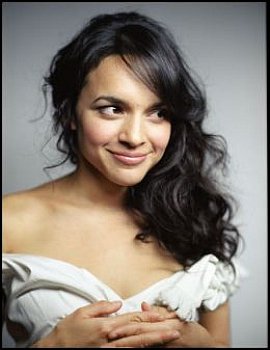
Somebody up there obviously likes Norah Jones and blessed her with extraordinary good looks. Those are her cheekbones and ruby lips which have been replicated in their thousands and grace the cover of her album Come Away With Me.
And just in case her looks alone weren't enough to draw attention to this 22-year-old singer/pianist, that somebody up there also blessed her with musical talent. It's one of those appealingly elusive talents, however. She's on a jazz label but loves the country music of Texas where she grew up, is touring in the States playing rock venues as she and her band open for singer-songwriter John Mayer, and has sung on the most recent avant-jazz album of the guitarist Charlie Hunter.
And one of the standout tracks on her first album for Blue Note is a treatment of the Hank Williams country classic Cold Cold Heart, which sits neatly alongside originals by her and bassist/boyfriend Lee Alexander, and Hoagy Carmichael's jazz standard The Nearness of You.
Whatever it is that Jones does -- and purists would be loath to describe it as "jazz" -- it is very popular. Her album sat at No 12 on the New Zealand charts last week. In this month's Real Groove rock magazine it is hailed in two separate columns, one of them concerned with jazz and what record companies call heritage (i.e. older) artists. The other was a glowing report from a country music writer of her appearance at the South by SouthWest music festival in Austin, Texas, last month.
And in the US where Jones has picked up equally favourable comment in the New York Post, Rolling Stone (as one of 10 new artists to watch), LA Times and Washington Post, her album has surpassed her sales expectations.
"I thought if we sold 10,000 copies total then I could do another. I thought Blue Note would probably let me make another if we sold that many. I think we've sold over 70,000 so far." 
It's late afternoon in Los Angeles and Jones is having a rare day off. She, guitarist Jesse Harris and Alexander are lounging in her hotel room. They've been on the road since January 3, first on a short headlining tour playing small singer-songwriter venues and now opening for Mayer in larger halls for a predominantly rock audience. They've also fitted in appearances on the Jay Leno Show and, the highlight of her career so far, she opened for Willie Nelson for four nights at the grizzled old outlaw's suggestion.
"That was the coolest thing, I just love him so much."
It's probably comments like that which confuse those who would try to pin Jones as simply "jazz musician". After all she is on Blue Note, one the longest-running and most creditable of jazz labels, and she has certainly paid her dues playing standards in restaurants and nightclubs of her adopted home, New York.
But while you can take the girl out of Texas, it also appears you can't take her far from the soundtrack of the Lone Star state. 
"And my mom is from Oklahoma and when she and I would visit my grandma there she'd always have Willie Nelson playing. But I never thought I was into country music at all until I moved back to New York a couple of years ago. It was only then I realised just how much of that I had in me."
Music is in Jones' blood. Her father is the legendary sitar player Ravi Shankar -- absent all her life and about whom Jones prefers not to talk. She met him only four years ago.
Born in New York, she was raised by her mother Sue, a nurse with an urge to travel. The two lived in various states before settling in Dallas where the young Norah played sax in a marching team, learned piano and sang in school and church choirs. Obviously gifted, she won three awards in high school from Down Beat jazz magazine in the mid to late-90s for songwriting and piano performance.
She listened to her mum's Billie Holiday and Aretha Franklin albums, played regular gigs in coffee bars, restaurants and hotels, then headed for New York City a little over two years ago.
"I had my little 12-song demo of me and a bass player doing jazz standards. A friend made 30 copies on his computer in New York and I just went around jazz clubs and restaurants and tried to get gigs.
"I didn't get called back by some people and others I had to be persistent with and finally got a gig. I did solo gigs and then duo things, and finally trio things which meant I met a lot of musicians who in turn started calling me for gigs as a hired singer.
"By the end of the summer I was playing two and three nights a week, and by the end of that year playing sometimes six nights a week in restaurant-bar situations. There weren't a lot of listening rooms. The first time I played for an audience that was actually listening, and wasn't a high school recital, was at the Living Room which is a singer-songwriter club. I realised it was more fun playing to people who listen, although playing restaurants and bars is where you learn."
Jones could have been learning in those Big Apple bars and restaurants for years, however, if that someone up there hadn't liked her. 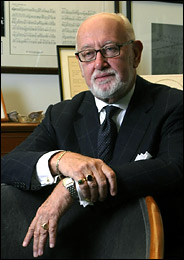
One night a woman who worked at Blue Note heard Jones play and was so impressed she called the label's influential boss, Bruce Lundvall (right), and told him about her. Jones was invited in to play some of her demo material, Lundvall was duly impressed, went to see her play live at the Knitting Factory, then offered her a deal to record some more material.
"They give you some money to make a demo but you have to sign a contract. If they like the demo they'll sign you to a proper contract but if they don't then you don't have to pay the money back.
"I was so nervous because I'd just barely started writing songs and here was this jazz label wanting me to make recordings. All I'd done before was jazz but I was at a crossroads and didn't know whether I should do standards or the new stuff, so I did a compromise. And the stuff that came out best were the originals and not the standards.
"Jazz standards are some of the greatest songs, but right now there's no reason for me to sing them because plenty of people do them, and older people who've recorded them. So it's okay for me not to do that."
Her demo, which included country-styled ballads alongside the more breathy jazz material, initially confused Lundvall.
"There was a Horace Silver [jazz] song and some originals, and Lonestar which is sort of a country song. Bruce said he liked it but, 'It isn't really jazz. Are you sure you want to be on Blue Note? Maybe you should do something more jazzy.' But then it grew on him and a month later he said, 'Norah, I love Lonestar, it's as country as can be but we like the direction you are going in so don't worry about us putting a jazz thing over you. We don't want you to do standards.' I was so relieved."
The label had previously also had considerable success with artists such as Cassandra Wilson and Dianne Reeves, whose music similarly defies convenient pigeonholing. When Lundvall decided to run with Jones he called in six-times Grammy-winning producer Arif Mardin, who had worked on albums with Aretha Franklin, Bette Midler, Willie Nelson, Barbra Streisand and the Bee Gees.
"I didn't know his name very well but had heard it. Then when I looked it up I realised I had half of the great records he did. He'd just come over to Blue Note and this was his first project. I was nervous but adamant about the minimal production and using mostly my own musicians and also my own engineer, and he let me do all that.
"The Hank Williams song Cold Cold Heart was his least favourite but I said we were going to record it anyway. I probably wouldn't have recorded it had I realised so many people would comment on it. I'm not trying to make a statement, I just like the song and the way we do it. I hope Hank isn't turning over in his grave."
That's hardly likely as Jones and her small band strip the song back to its melodic essence and present it as a warm cocktail bar ballad. It also makes a delightful and thematic companion piece to Alexander's Lonestar. 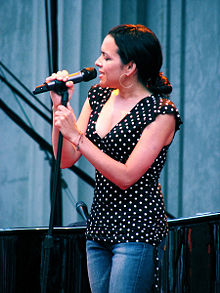
And it is these elements as much as Jones' easy delivery and the quiet mood of the album that has garnered attention for this precocious talent. It also helps that Come Away With Me isn't too readily slotted into "jazz", a category which can be off-putting for many and therefore a ghetto for great talents.
"Part of the reason I signed with Blue Note was because I knew they weren't going to turn me into some pop thing, and that's the concern with big labels. I'm not trying to sell zillions of records, I just want to keep making them and knew if I sold a small amount they'd keep me on. And I was excited by the fact they didn't put pressure on me.
"I know there are people who are very straight-ahead jazz snobs who don't listen to anything else. But the fact is times have changed. I come from a very strong jazz background and for about six years that was all I listened to, but right now this is the evolution I've taken with it. And I just happen to be on a jazz label."
NORAH JONES INTERVIEW FEBRUARY 2003: Auckland, New Zealand
.jpg)
Singer Norah Jones has been one of music's conspicious successes of last year. The 23-year old's debut album Come Away With Me has sold upward of five million copies and she has been nominated for five Grammys. The album was produced in part by the legendary Arif Madrin, and released on Blue Note, the famous jazz label. Although Jones was schooled in jazz her songwriting and interests changed between the time of her signing and the recording and Come Away With Me hardly fitted the description of jazz.
It included a version of country singer Hank Williams' Cold Cold Heart alongside material written by Jones, her bassist/boyfriend Lee Alexander, and guitarist Jesse Harris. That this came out on a jazz label annoyed some jazz purists - but five million buyers haven't been troubled by that, they just liked what Jones did.
But as the album took off Jones was under considerable personal pressure to do interviews and reveal herself to a public curious about her. She finally cracked in May 2002 and put a halt to the gruelling interview schedule. She was also touring relentlessly and, with Alexander who had contributed four songs to the album, had little time to write new material.
Ten days out from the Grammy awards she gave us a rare interview in a hotel room in Auckland before her two sold out concerts. She was cheerful and quick witted, curled herself up casually on the hotel couch, and was animated and open. Stardom rests easy on her, and she gives the clear impression of someone very level-headed and in control of her career, despite the speed at which it had been travelling.
Thank you for your time, I appreciate it because I know this not what you do for a living, this is the endurance test around it.
Yeah, we were just talking about that. It's fine when it's just a few hours. It's when they try to schedule the 12 hour press day that I just can't handle.
I guess when the album took off that's exactly what happened.
Yeah, and I had no boundaries. But I set them very quickly. (Laughs)
You would have found you also started repeating yourself.
Basically, and it wasn't fair to the press people either. If someone arrives at the end of an eight hour day I'm kinda like [mimes being asleep] so it's not fair for anyone.
After this you go back to the States?
We go back and are there for three months.
And you have a break between here and the Grammy's on the 23rd?
Three days or something. That's not too bad.
How do you feel about the Grammy's?
It's going to be exciting.
Are you going to take your autograph book? 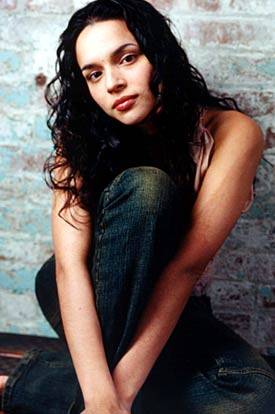
(Laughs) I've never been into that, I'm not one of those people. I'd rather shake somebody's hand and talk to them than get them to sign something.
What do you think your chances are? Do you sit around alone at night and think about it?
No, I can't think about it. It's fun, it's already been amazing being nominated. Sure it would be cool to win but . . .
With all due respect you've already won lots of awards, do you find the edge has gone of it?
Of the excitement you mean?
Yes.
A little. I don't take it for granted, like with the Grammy's going, 'Ho-hum'. No, it's awesome but it's not what I have been working for. This past year has been amazing and the Grammy's are like the icing on top of the cake, but it's not the main thing.
When does the album come to the end of its natural lifespan?
Hopefully right now. (Laughs)
That's what I'm thinking, the Grammys are the fullstop and you can put it behind you.
Yeah, we're recording in April regardless. Nobody wants to run this album into the ground. I definitely don't so we're not going to. I'm sick of it. I love my album and I'm proud of it and it's done really well but I'm really ready to move on. I don't expect the next record to be anything like this one, I know not to expect the same thing. I know this was kind of a fluke and . . .
You think it was a fluke?
Oh yeah, it's 100 per cent a fluke.
Why?
Because there's great music everywhere. I think it's a great CD but there are lot of great CDs so it's all about luck.
What luck did you have? You put your CD into the world. I spoke to you in April last year and you said you'd hoped for sales of 10,000 and by then it sold 70,000 and now it's what - five million. I see that as more than a fluke, that says to me a lot of people like it.
Yeah, but that's the fluke. The fluke is that they heard it. A helluvalot of people would like a lot of records that they have probably never heard of. The fluke is that I was lucky enough to get in there and slip through the cracks and people heard it somehow. I don't know how that happened.
Do you think that people were ready for this because they have heard a lot of manufactured pop or manufactured something and your album didn't sound like that.
I think so - and there's nothing wrong with manufactured pop, to a point. It's a lot more manufactured now. It's okay to have some of that and there's a place for it. But it became too mainstream and everything on the radio was like that, except for cool college stations. So I think people were ready for something which was not like that.
I understand what you mean when you say you are sick of the album although I'm sure you will also tell me you are not sick of playing it because you love the songs . . .
Well, we go in and out of liking them and every once in a while we get sick of certain songs. But they always have a circular life, either we change something or one night we play it great and we're not sick of it anymore. So they have all had their moments when we have been sick of them, but we put enough new stuff in the sets so we don't get totally sick of everything.
New things then?
Yeah, we have a few we've been playing since February and we have a lot of different covers. We put different covers in to make it interesting for us.
So there has been some writing going on while you've been on the road.
Yeah finally. In the beginning we were afraid we weren't going to be able to do it. Now we have a few more songs written.
On the way here I was thinking while I love the album it is one you hear so often you forget how much you liked in the first place and the familiarity has diminished it.
That's what I don't like. I would never have signed to a pop label because I was afraid they would have crammed it down everyone's throat and I didn't want that to happen. 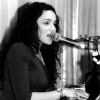
So you signed to Blue Note - and then had all those questions about whether you were a jazz musician?
(Laughs) Yeah. I am a jazz musician. I was brought up on jazz and that's all I wanted to play for seven or eight years. This is just the direction I've gone so it's not really a jazz record at all because I got into songwriting and country music while I was making it, and that's kinda like what it ended up being more like. But it's funny because the hard-core jazz community can be very catty with non-jazz which is presented as jazz, so I'm very quick to say, 'This isn't a jazz record'. I just want them to just get over it, because I know how they can be. (Laughs) I used to be one of them, that's how I know!
The interesting things is that Blue Note has had many other artists who have pushed those parameters anyway.
Oh yeah. I signed to Blue Note, they are a jazz label. But I got into this other stuff and knew I didn't want to be another label, I knew I could make the kind of record I wanted to make on Blue Note because of Cassandra Wilson and people like that. I'm a huge Cassandra Wilson fan, she does Hank Williams songs, Neil Diamond songs. She's a little more jazzy in most people's minds but it doesn't matter. It's just about the songs really.
You said the next album is not going to be like this one?
I meant successwise. I don't have any expectations. People are going to hate it or like it. Probably it'll be, 'Well, it's not like the first one'. But who cares? Let them say that. I'm going to make the album I love and I'm not going to put it out unless I love it.
Songwise I'm guessing that because you are introducing new things into your live set that they might turn up on the next album.
Definitely - unless we record them and they stink.
They must fit the tone your current set, so they fit within the orbit of your style.
Yeah, they are in the orbit. Maybe [the next album] will be a little less mellow. We may do one or two of Jesse's songs but he's not playing with us right now so we probably won't do as many of his songs. We did a lot on the last record. Lee and I have a lot more songs to offer that we've co-written which we didn't do before. My current guitarist has a few songs we might do, my drummer and back-up singer have written and we might do some of theirs, and we'll definitely put on a couple of covers.
The success of this album has forced you to write on the road. Lots of songs about hotel rooms?
(Laughs) Oh no. Although I do have a song I started on a plane which is about flying. Yeah, at first it was really hard but the main reason is it's hard is not hearing music and going to hear people live, and not being able to do that because we were on the road meant I was in a rut and didn't have any ideas. I felt really lame.
When was the last time you got out to see live music, in Australia in the past fortnight?
Yeah, we went out to see Jane's Addiction. It was great. It's so good to do that. This past summer we were on the road and we had a day off and we got to see [country singer] Gillian Welch. She was amazing. She's going to tour with us this summer for a few weeks, she's amazing, she rejuvenated us.
And what she does sounds like it was all written a hundred years ago.
Yeah, she is incredible.
And Jane's Addiction?
They are awesome, what's not to like? Also our lighting director was working with them so he got the tickets and asked if we wanted them. Hell yeah we wanted them! It's so fun to go to a rock concert. How much more fun can you get? We saw them the night after the Big Day Out in a small club, maybe 2000 people, that was cool. 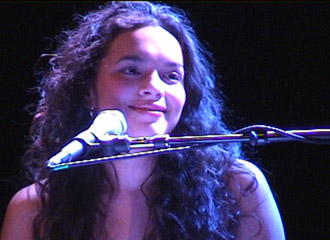
You must have become very tired last year with the demands of having to do this sort of thing.
Yeah, in May in Europe. Europe is hard because every country needs their own [interviews], and in every country we were only there two days. So they need all their demands met in two days. So in Europe I went a little mad and wrote a letter saying, 'No more press. These are my rules, I will go insane and quit if these rules are not met. No press, press by extreme consideration'. They took me seriously because I was about to lose my mind. I mean, what's the point of doing this if you can't keep the balance. There's no point for me. I don't need to sell six million albums. It happened and it was amazing, but it's not something I am driven to work myself into the ground to do. It's already done well, so why kill us?
Would you be quite relieved if the pressure came off with the next one and you could live a more normal life?
If there's a way to do it, like right now this is fine. I enjoy talking to people and I'm willing to work. Just do what is necessary. It'd be cool not to have to do it, but its okay and it comes with the territory. It's not a bad thing but it's like anything. Anything that is too much is bad.
A lot of musicians I know have a mentor they can talk to, and I understand that because you live in a unique world best only understood by your peers. Do you have somebody like that?
I don't really have someone who does the same thing, but I have a lot of people who are very supportive. Actually everybody at Blue Note I have become very close with. But I don't really have anybody. I've met a lot of wonderful people I really like, like Willie Nelson and Joni Mitchell, who have been so nice. If I really needed advice I could maybe pick up the phone. I'd be too nervous probably but I think they'd be cool about it. But maybe I don't know them that well, although it was really cool to meet them to watch how they work.
I'm going to embarrass you and ask you about money. You're rich. Do you spend a lot of time talking to lawyers these days and getting investment advice?
Yes. I spent a lot of time with my lawyer this year, not the kind of thing I'd ever thought I'd do. They charge so much! But it's worth it and you've got to cover your butt.
Sure, a lot of people in this business came in and earned a lot of money for other people and nothing for themselves.
Yeah sure. I feel very lucky now. If in 10 years I find I've been swindled then I might think different but I have a good feeling about all the people I work with. My management is honest, the record label is honest . . . Well, record labels, you know. (Laughs)
Oh yeah.
Actually the people I deal with are great. My accountant is great, so I really trust the people I work with.
Has Bruce Lundvall [of Blue Note] come to you lately and said, 'Come on, when's the new album?"
No actually.
No pressure from the record company at all for a new album?
We had a talk about it a few months ago but that was just because he wanted to know what we thought and what to plan for. We decided we really want to have a new album - that's 'we' as in 'me and the band' - and I don't think the label cares, as long as it's not too long.
Well, they could keep pushing this for a while.
Yeah they could but I don't want them to. We could have a new album by September or we could wait until the new year. Either one is fine.
And a producer?
We're just going to go in and record ourselves because the best tracks on the record, or the ones which came out the best, were the ones where we were making demos with no producer. I think that's how I need to record, and that's how we are going to record. I might take it to Arif afterwards to see if he has any ideas or thoughts, to see if we need to go back and add stuff. But as far as recording, it's just going in. Arif would be great but I don't want to put any kind of pressure on. 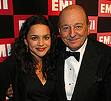
It struck me that many people made a very big deal about the fact he produced your album whereas to me it sounded very under-produced, exactly what the musicians wanted to do.
Oh it totally was, but he's a famous producer.
So you benefited by his name being on it but he did a lot less than people, critics, were saying.
Definitely. He came into the project at a later time. We did these demos and went in with Craig Street who is a great producer, but we didn't quite get what we wanted and they didn't sound as good as the demos. I sounded way in the background behind the guitars. So what we realised we wanted was something that sounded like the demos, and the demo ended up being the single. And Turn Me On is from the demo, one take recorded live. So when we went back in with Arif - Bruce wanted me to work with Arif and I was really scared, I didn't want it to turn out like it wasn't right - I was stubborn. So he let me use my own musicians and my own engineer and that was cool. He's such a sweet guy and was very sensitive to what I was scared of and added really sensitive small touches.
But if someone suggested Phil Spector to you, you might say maybe not.
Oh, not now. Poor guy.
Do you get much time off before going into the studio, you said you were back in the States for three months.
We're not touring for three months.
What do you do when have time off?
(Laughs) I don't know anymore. We're trying to move so that might take some time. Just seeing my friends will be good.
When was the last time you slept in your apartment?
Actually it was last month, we were home for a few weeks over the holiday period which was the longest we'd been home all year. But I need to get a new apartment, it's too noisy and we want to sleep in in the morning. So we'll just be going out to dinner with friends, see music, see my friends play, that'll be good. I have no self-discipline so when there's nothing I have to do, I sit around. But now will be nice, it's what I am supposed to be doing and I won't feel as guilty.
Well now you know what the opposite is like when you have to do things all the time. You remember one particular day when it all went bad?
Yeah, the whole month of May and the whole two weeks in February when I did the press tour in Europe. Give me an old calendar and I can point to the black days. People were nice and it was exciting but it was too much.
People assume you are public property. Your songs have written themselves into people's autobiographies, they will say in 10 years time they fell in love to Norah Jones and you are part of their lives now.
Yeah, I think it's a date record and I wonder if babies were conceived to it. It's a mellow record.
You'll be seeing the name 'Norah' appearing in the birth notices.
Oh God, I hope not.
NORAH JONES IN CONCERT, Civic Theatre, Auckland, New Zealand February 2003 
It's a safe bet many who went to hear the hushed intimacy of American singer-songwriter Norah Jones last night on the strength of her Come Away With Me album were equally impressed by the very different sound of the local opening act, and no relation, Paul Ubana Jones.
Ubana Jones' big-voiced, open-hearted delivery and full-bodied guitar work ranged from blues to folk, at one point sounding like a one-man Led Zeppelin in their Anglofolk mode. He ended with an acapella tune to sustained applause.
But it was always going to be Ms Jones' night although there, too, came a pleasant surprise. Where her album merely suggests a love of country music, in concert she proved to be an exceptional country chanteuse with a powerful voice which is more soulful than expected.
It was easy to hear why she has reminded some of Dusty Springfield in her Memphis years or the Tennessee soul style of Bobbie Gentry.
With an excellent five-piece band she opened with a superb treatment of Hank Williams' Cold Cold Heart and hinted at her jazz credentials as she stretched notes over the beat and around the rhythms.
And as the evening progressed it became clear her album merely suggested her potential: this was a concert which shifted easily from a spare torch-song treatment of The Nearness of You to gentle soul-funk, included the Everly Brothers' Sleepless Nights and upped the tempo on familiar album material like Feelin' the Same Way.
Musically, Jones and her band took the audience on a journey, most of it through the Southern and mid-Western states, but never lost touch with what people had come to hear: that voice and those songs.
If there was a disappointment it was that her piano playing didn't get a real workout, but that's a minor quibble.
Jones delivered and then some. A few of the new songs probably won't make the next album. But there were also standouts.
If there was one overriding feeling at the end, it was that Jones is certainly not a one-album wonder. There is better to come. Especially if you like that territory between evocative, atmospheric country and the Great American Songbook.
Last night a sold-out Civic indicated it did
NORAH JONES' ALBUMS REVIEWED
Come Away With Me (2002) 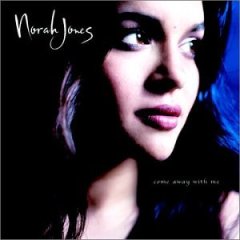
The definition of what a jazz singer is has become somewhat slippery in the past decade or so. If we consider improvisation one of the essentials in any definition of jazz then it's a bit hard to make the case for albums by the likes of Diana Krall whose smooth delivery sounds perfectly manicured.
Line her up against Sarah Vaughan for example and it's no contest. One is a jazz singer, the other a very good singer who sometimes sings songs from the jazz catalogue and occasionally treats them in a jazz manner.
This takes nothing away from Krall and her kind (Krall is certainly a jazz pianist by this flexible definition). It just acknowledges we seem to be using a different yardstick these days.
So is Norah Jones - on the Blue Note jazz label - a jazz singer?
Let's get to that in a minute after we've learned a little about her.
For anyone who was tuned in, Jones was the vocalist on a couple of tracks on the last Charlie Hunter album Songs from the Analog Playground where she delivered superb treatments of Roxy Music's More Than This and Nick Drake's Day is Done. Neither are "jazz" tunes but Hunter is a jazz guitarist and also on Blue Note, and she certainly treated them in a jazz manner.
But the fact is Hunter's album, and therefore Jones, went past most people -- a shame, it's a cracker. And would have introduced this precocious new talent.
Jones was born in New York in '79 and when she was 4 she and her mum moved to Texas. If you wonder why dad didn't come it's that he was, and we are putting this politely, an absent father and Norah doesn't like to talk about him. His name? Ravi Shankar. Yes, the very same.
Growing up in Texas she started singing in church choirs, learned piano and alto sax and treated herself with her mum's Billie Holiday albums.
She attended the same high school in Dallas as Erykah Badu and jazz trumpeter Roy Hargrove, sang in local clubs, won a Down Beat magazine award for best jazz vocalist and best original composition in 96, and the following year won their best jazz vocalist section for student musicians.
She arrived back in New York three years ago, sang with the funk fusion outfit Wax Poetic, then pulled together her own group and auditioned for Blue Note with songs which included Horace Silver's Peace alongside some originals. She was signed to the label in January last year and her just-released debut album proper (the sessions have been released also) was produced by Arif Mardin who has done duties with the Bee Gees, Dusty Springfield and Aretha Franklin.
Whether Come Away With Me is a "jazz" album is neither here nor there. Let's just settle with saying it is exceptionally good and along the way she offers a wonderful, walking bass version of Hank Williams' country classic Cold Cold Heart, which is just a finger-pop shy of a martini bar shuffle, and closes with a spare and entrancing version of Hoagy Carmichael's The Nearness of You, which is just her and piano.
Elsewhere she is out front of a small and subtle band which at times includes slide and electric guitar, violin, Hammond organ, accordion and pump organ. Guitarist Bill Frisell guests on the haiku-like conciseness of The Long Day is Over.
And these are mostly from the pen of guitarist Jesse Harris or Jones herself. At 22 she's as mature a songwriter as you could expect.
What impresses about Jones' vocals is that she occupies the territory between a polished smooth Billie Holiday or Nina Simone, and a more seductively breathy Joni Mitchell. Or Sarah Vaughan if she'd grown up in Pasty Cline's house. It is stressless listening and I suspect it will become popular on patios, in sophisticated bars and late at night when one hand is reaching for the dimmer. It's seductive and seduction music.
Last month Rolling Stone picked her as one of 10 artists to watch, Entertainment magazine said much the same, and now this column is too.
Come Away With Me, with its subtle amalgam of jazz, country, pop chanteuse and soul might not push the boundaries, but in its simplicity, ease and elegance it is one tempting invitation that Jones makes.
So it probably doesn't matter whether it's a "jazz" album or not.
Feels Like Home, February 2004 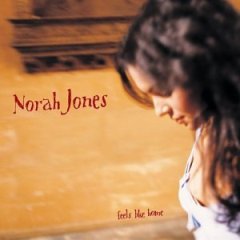
Almost two years ago you heard about Jones' extraordinary debut album, Come Away With Me, right here. At that time she was an unknown singer who had been heard only in bit parts on guitarist Charlie Hunter's albums.
But outside of that - and let's be honest, how many people knew of Hunter, let alone remembered his guest? - Jones was just another young singer/pianist with a debut album on the Blue Note jazz label.
She'd played jazz although wasn't a jazz singer - but what she did with a muted voice and downbeat selection of songs was something special.
The review, which also filled in her background as sitar player Ravi Shankar's daughter who grew up with her mum in Texas, concluded with this: "Come Away With Me, with its subtle amalgam of jazz, country, pop chanteuse and soul might not push the boundaries, but in its simplicity, ease and elegance it is one tempting invitation that Jones makes."
People steadily picked up Jones' intimate invitation and the album has now sold a whopping 172,000 copies in this small country. It's been on our charts 91 weeks and is still in the top 40.
But along the way Come Away With Me suffered from overkill. It seemed every damned restaurant and hairdresser had it on high rotate.
You can't say we didn't warn you, though. It gives me no pleasure to note what I also said in that review: "It is stressless listening and I suspect it will become popular on patios, in sophisticated bars and late at night when one hand is reaching for the dimmer. It's seductive and seduction music."
The unfortunate side-effect of that over-exposure was the album ceased to sound as fresh as it was - which of course is hardly Jones' fault.
In fact when she spoke to the Herald for her first New Zealand interview, in April 2002, she said she wasn't trying to sell zillions of records and that's why she had signed to Blue Note. It was a jazz label and they weren't trying to turn her into some big pop act.
Well, she became one regardless and her new album will answer that question which has floated around: could she do it again?
The answer is an emphatic yes.
She takes her music into a kind of polished roots style and rides even closer to country than before, as she duets with Dolly Parton and covers Townes Van Zandt's Be Here to Love Me with keen understanding.
This sounds a stronger, more musically engaging album than that arresting debut.
Songwriter Jesse Harris (who penned her Grammy-grabbing hit Don't Know Why) is no longer in the ranks but Jones - who has here written or co-written six of the 13 tracks (including the bitter sweet lyrics for a Duke Ellington melody on Don't Miss You At All) - is admirably democratic.
Her bassist/partner Lee Alexander writes or co-writes a few again; guitarist Adam Levy contributes In the Morning; another guitarist, Kevin Breit, offers Humble Me; drummer and vocalist Andrew Borger and Daru Oda present Above Ground.
The rest is filled by a new Tom Waits/Kathleen Brennan tune The Long Way Home (an immediately familiar piece of pure country over a Johnny Cash-lite bassline) and that Townes Van Zandt cover.
Yet despite this diversity of contributors the flavour is identifiably Jones.
This is a subtle and clever collection where the arrangements gently push in different directions - and that makes it a more interesting (and you suspect a more long-lasting album) than it's predecessor.
Her original What Am I To You?, where she plays Wurlitzer, slips discreetly towards southern funky soul (with Levon Helm and Garth Hudson from the Band, and Tony Scherr on brittle electric guitar).
On the elegantly simple Carnival Town, with its barely discernable string arrangement, there are hints of Cole Porter, and Jones delivers an understated but entirely appropriate piano solo.
In the Morning has a slightly humid swamp-funk feel and Jones sings like she's been listening to Bobbie Gentry before letting go a slinky jazz-funk solo on Wurlitzer.
The country-pickin' Creepin' In sounds written for Parton - Dolly repaying Jones for her sensitive treatment of The Grass is Blue on the recent nod-to-Dolly album Just Because I'm a Woman - and they duet like they were separated at birth.
Throughout there are only the barest hints of those various styles - soul, country, bluegrass and swamp - but they are enough to give this more musical depth than Come Away With Me.
Add that to the upward trajectory of energy the tracklisting offers - it hits an uptempo, foot-tapping peak with Dolly at the midpoint before winding slowly back down to the minor blues ballad of The Prettiest Thing and the Ellington ballad - and you have an album that is as smart as it sounds.
So yes, this too will be played at dinner parties, in art galleries, hairdressers and the like. But you won't tire of it quite as quickly, and even if you do, remember this: it isn't Norah Jones' fault people thrash her albums because they like them. She has more than kept her end of the contract here.
With partner/producer and musical collaborator Lee Alexander she settled into an apartment in New York and, among other things, wrote the funny and slightly sexy Little Room (complete with slightly flat whistling) about a bedroom so small she bangs her elbow on the doorknob. It is an easily delivered song and emblematic of the overall mood. But that can be deceptive, because Jones undercuts the musical tone with some slightly disconcerting lyrics and serious, sad reflection. Lovers are lost or farewelled, and so are cities: Sinkin' Soon may sound like a wonky New Orleans romp but is about pre-Katrina hedonism.
My Dear Country - delivered like a more gentle, satirical Brecht ballad - is a letter from a former lover to the republic which has disappointed her, one who appreciates the good things (being allowed to vote) but feels sad about the multiple betrayals.
Standouts are the gorgeous alt-country ballad Rosie's Lullaby, the title track ("I've seen people try to change and I know it isn't easy") and the separation/betrayal songs Not My Friend and Wake Me When It's Over.
And everywhere Alexander colours these melodically spare songs with adroit instrumentation, subtle inflections and touches of country-flavoured guitars.
Jones aficionados will find the maturity and music here very appealing. Again.
Not Too Late, January, 2007 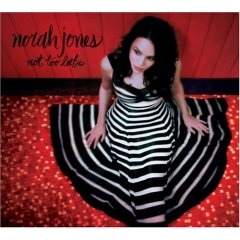
For someone on whose slight shoulders massive expectation weighed - her Come Away With Me debut sold more than 20 million - Jones has taken what seems an almost casual approach to her career.
Her second album Feels Like Home sold a paltry, for her, five million - but that's about twice what the Killers' Sam's Town has done. It expanded her musical parameters with subtle country inflections, and only careless reviewers and casual listeners wrote it off as just more of the very pleasant same. Then there was the album with the weekend band the Little Willies, the collaborations with the Foo Fighters and Outkast, and the relaxed journey to this third album.


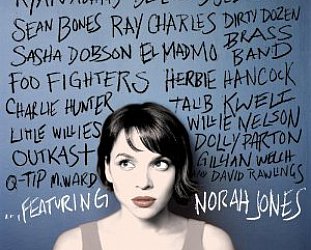
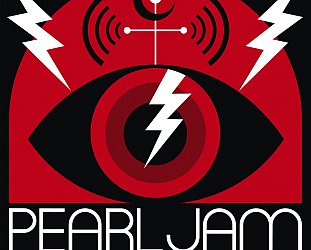
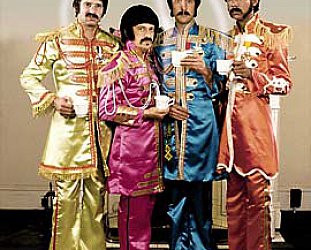
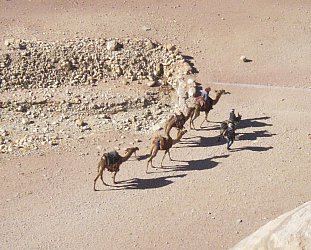
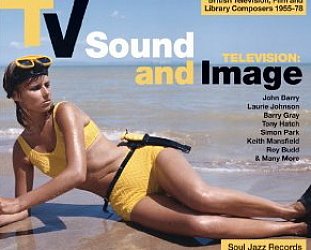
post a comment